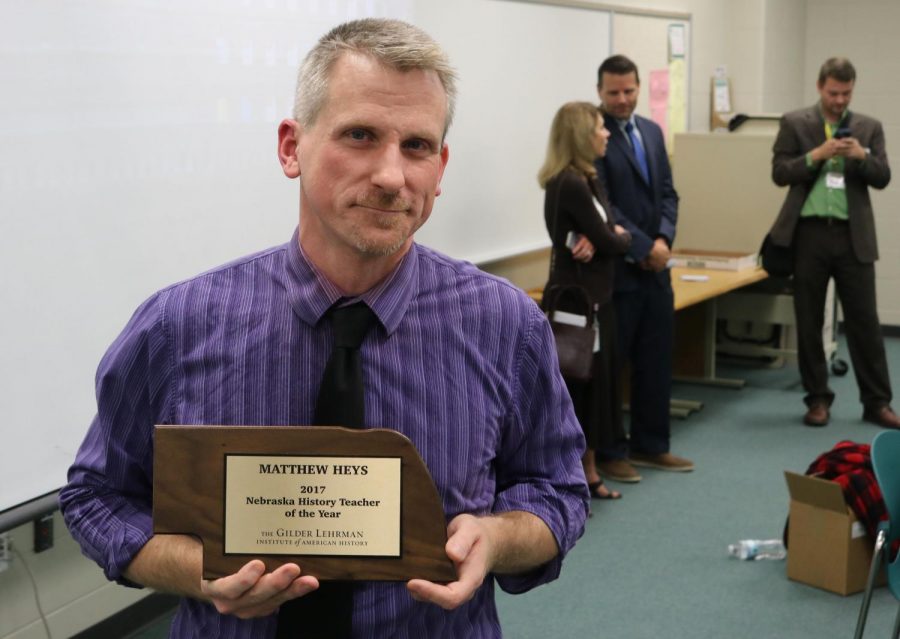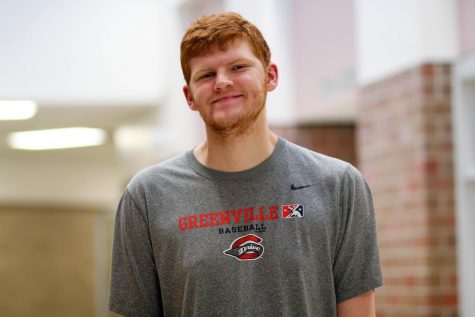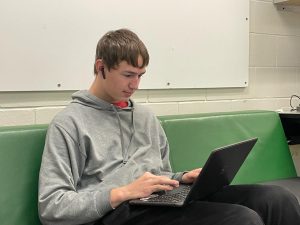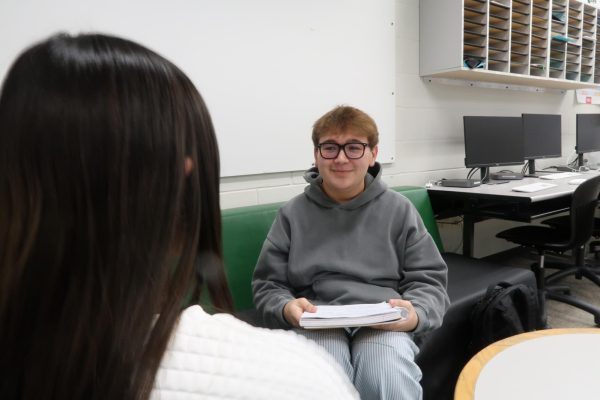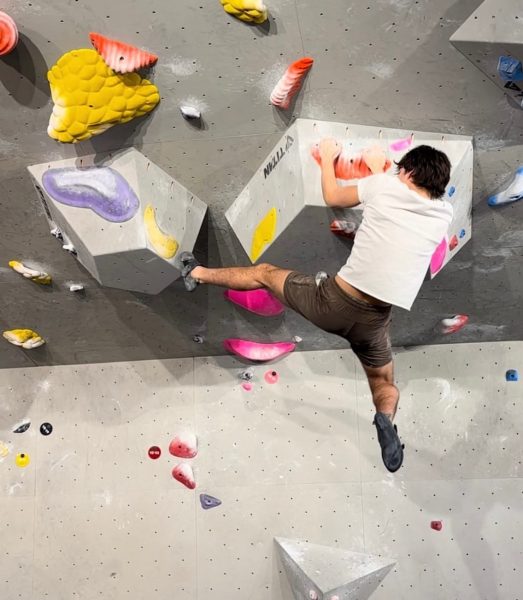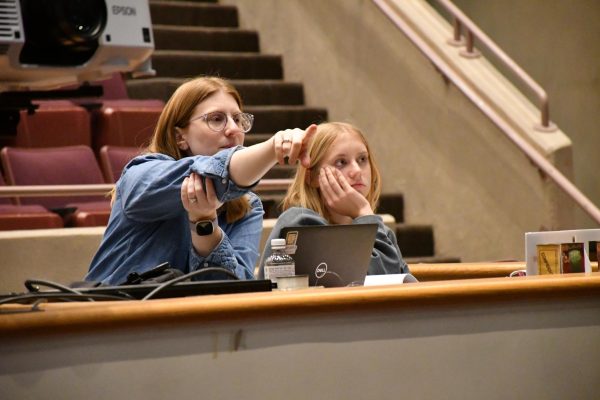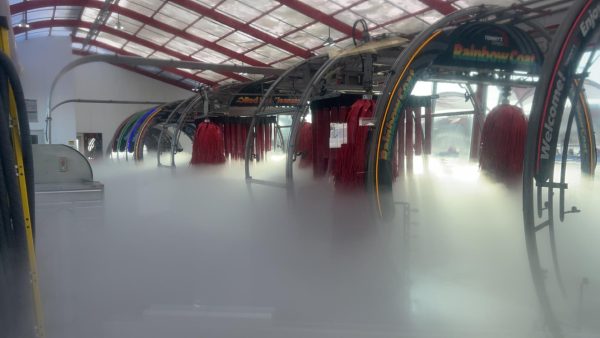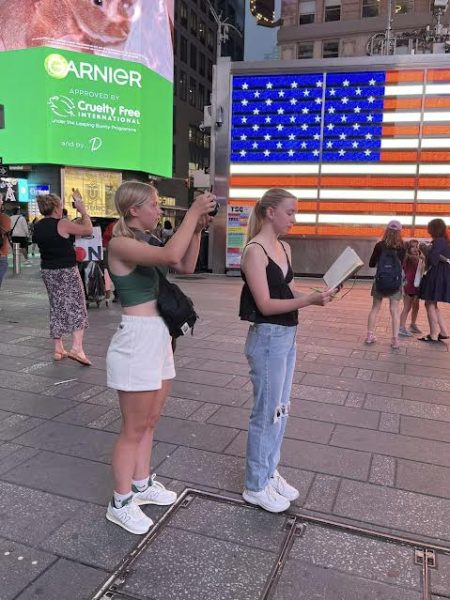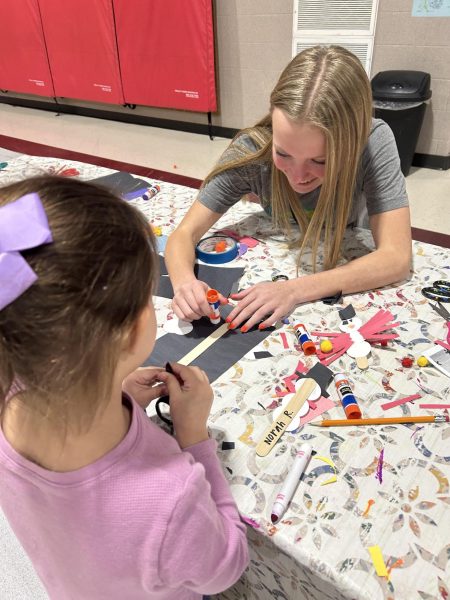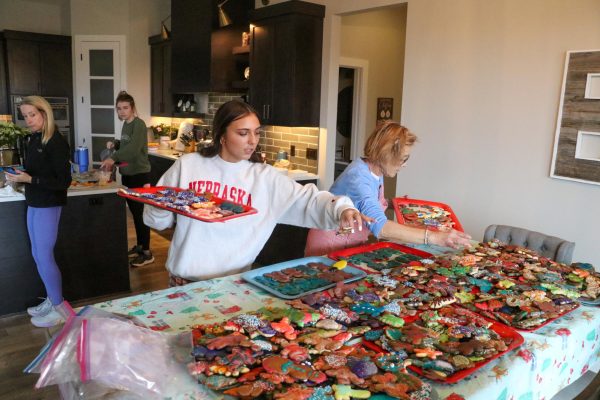Heys Pinpointed as Top History Teacher
October 9, 2017
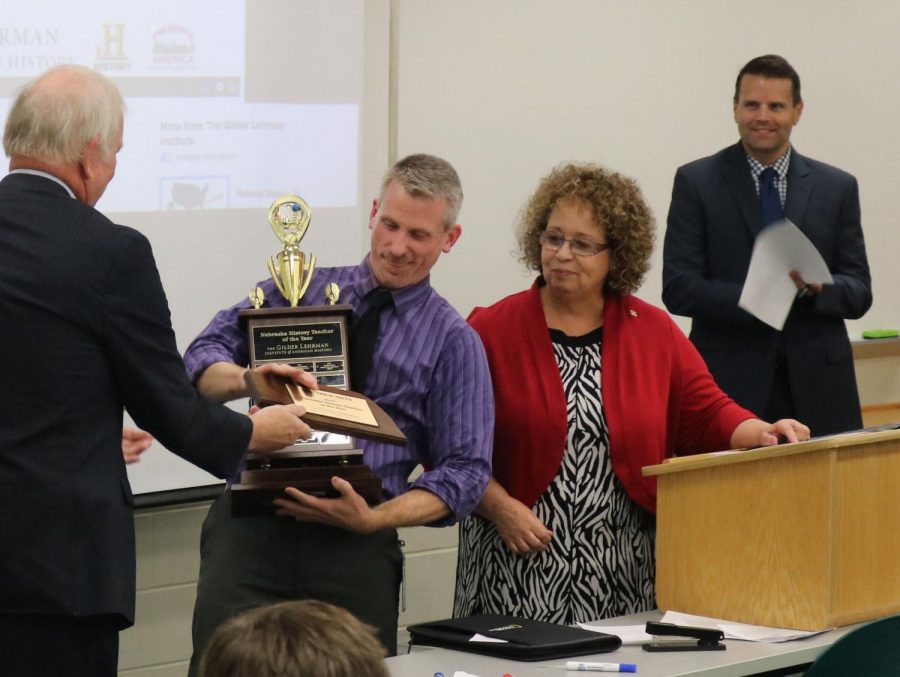
A wealthy land owner is sitting in a bar drinking a beer (root beer) and thinking about what is going on in Lexington, Massachusetts, in 1775. Britain is trying to control the colonies with the Stamp Act, the Sugar Act and the Townshend Acts. The colonies are on the brink of the American Revolution. Sitting around are people of all perspectives ranging from slaves to Tories to Patriots, all with different points of view. Students discuss for the entire class period.
This is what goes on during the 1775 Tavern Role Play simulation that social studies teacher Matthew Heys does for each AP United States History class.
Heys does quirky things like this on a regular basis. That is one of the reasons he just won the 2017 Nebraska History Teacher of the Year award.
The award recognizes exceptional K–12 American history teachers across the country and is sponsored by an organization called the Gilder Lehrman Institute, a historical think tank and educational research institution in New York. For winning the state-level award, Heys received a $1,000 cash prize, an archive of classroom resources and recognition at a ceremony.
Since Heys has won the Nebraska award, he is now going to be one of the 50 teachers from each state to be eligible for the national award which includes an additional $10,000 prize presented at an award ceremony in their honor in New York City.
Heys is an outside the box teacher. For example, Heys gets dressed up multiple times a semester and pretends to be historical figures such as Abraham Lincoln, Thomas Jefferson and John Calvin. This allows students another way to see and interact with history other than just reading it in a book.
“The really special part of class was the atmosphere that the classroom created with the people inside of it as well as Mr. Heys,” senior Jacob Conway said.
By having students participate in debates, impersonate historical figures and actually engage with the information the content can become easier to remember.
“When Heys incorporates humor into the lesson plan it definitely makes the information stick,” senior Meghan Earnest said.
One analogy Heys has made is teaching is like baseball, if someone is a very good hitter, he/she will succeed about one out of every three times.
“There are lessons that fail, and there are activities that just don’t work, but that’s also what makes it a fun puzzle to solve everyday,” Heys said.
Each different class can have it’s own strengths and weaknesses. Heys said it’s important to try and figure out what will succeed with a particular group of students. He thinks it’s necessary to try new things and deviate from the lesson plans and make adjustments on the fly.
“My most successful semesters or years or classrooms haven’t been so much about what I’ve been doing,” Heys said. “It’s been about the students willingness to takes the risks with me to see a lesson work.”
When teachers and students can get on the same page it can really open up a great possibility for success.
“Heys genuinely cares about teaching and the students,” Earnest said. “He makes sure that we actually learn the material and not just do work to pass the class.”
It is not just students who notice the teaching Heys is doing, he has caught the attention of other teachers and the one who nominated him for the award.
“It is a great honor because I take a lot of inspiration from the work they do,” Heys said.
There was probably nobody more thrilled for Heys than fellow social studies teacher Alicia Bragg who presented him with the award.
“He is one of my very good friends,” Bragg said. “I think it is a long time coming and we all kind or strive to be Mr. Heys in our teaching.”
While teachers recognize what make Heys a special teacher he still realizes, whether success or failure, “teaching is an interactive process in which the students are doing 80-90 percent of the heavy lifting.”

